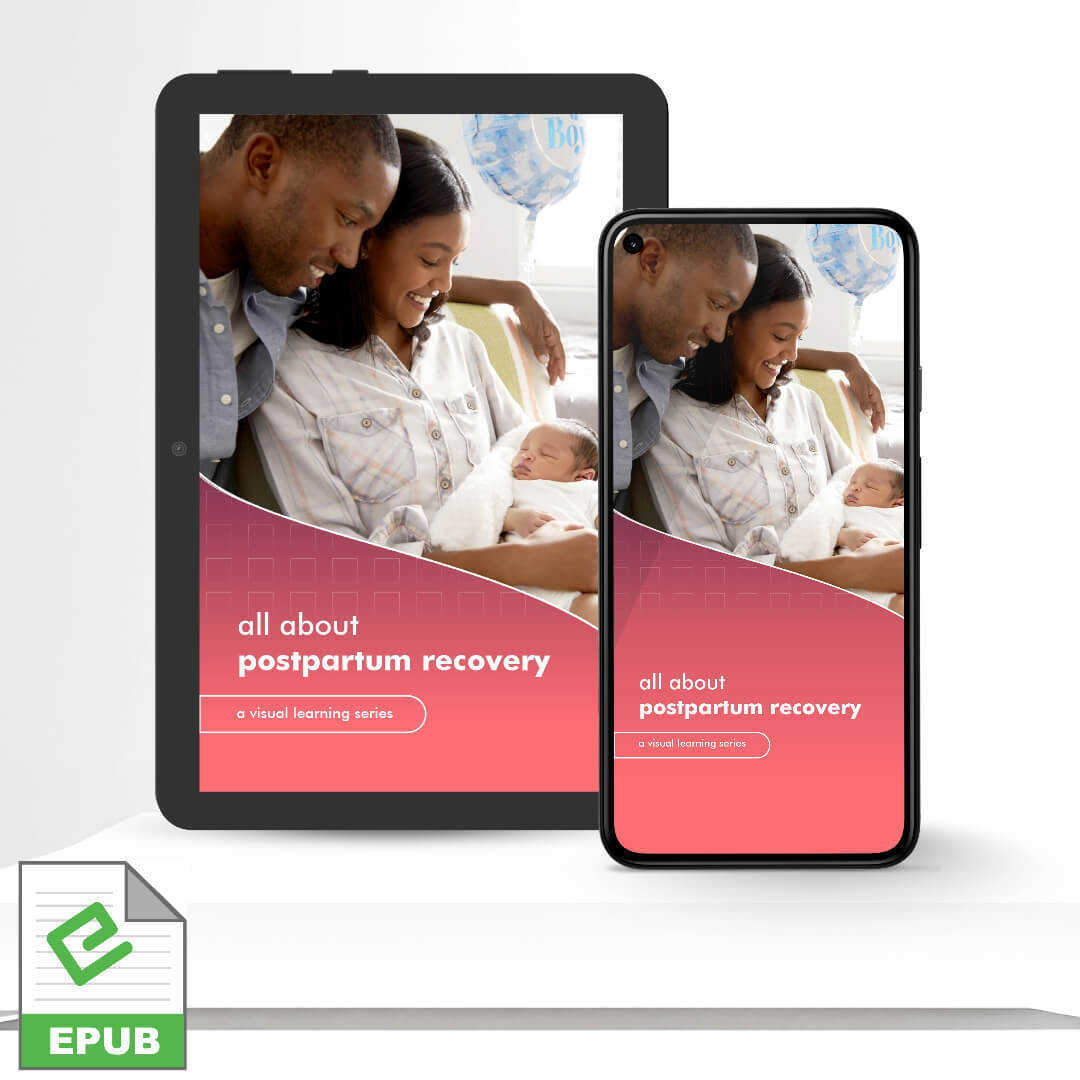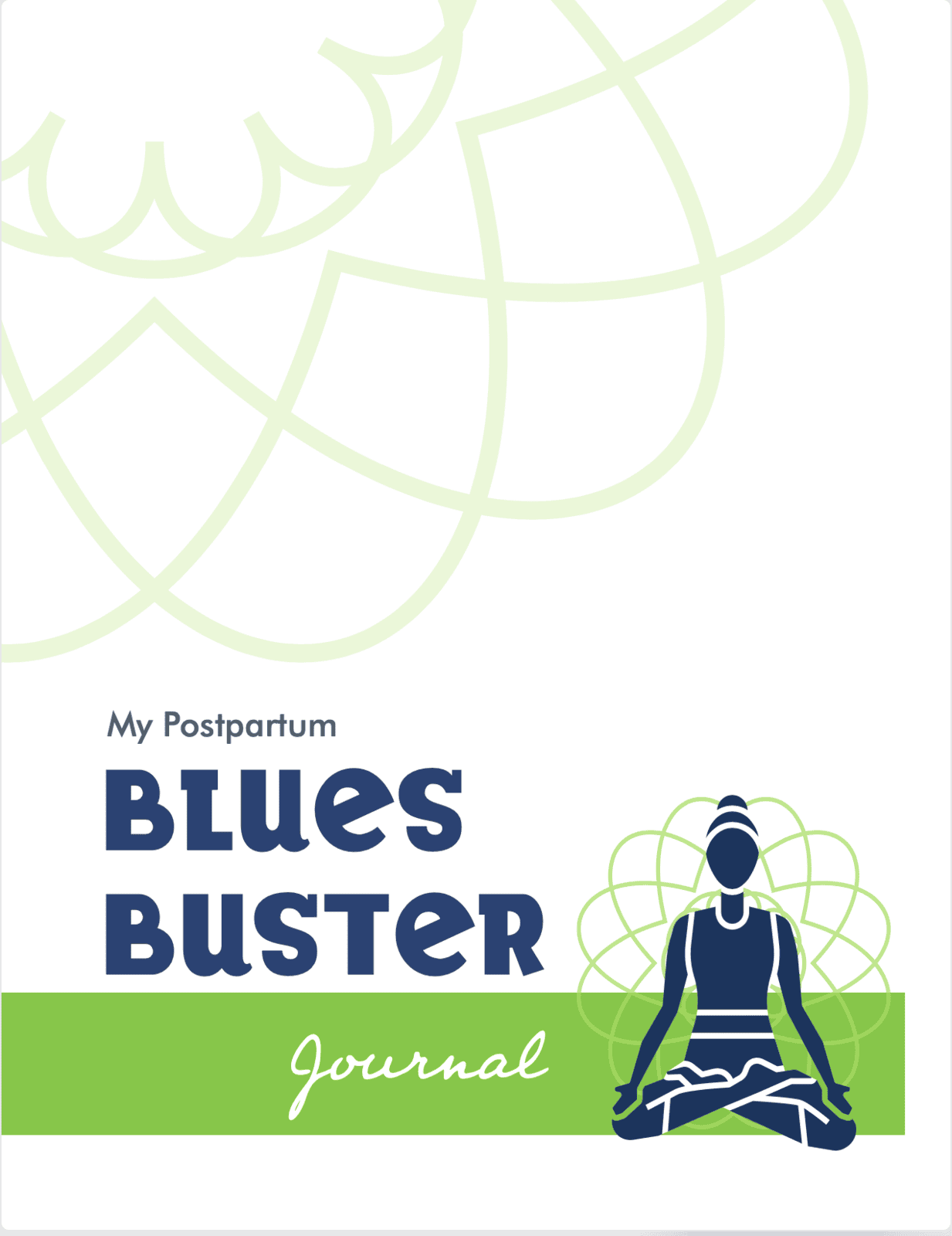
Did you know that 10% to 20% of pregnant and postpartum women are diagnosed with a mood or anxiety disorder? It's not just moms who can struggle—new dads can have depression, too. In fact, up to 10% of new fathers will experience some form of paternal depression.
What are the "Baby Blues"?
Recognizing Typical Feelings vs. Serious Concerns After Giving Birth
The blues often go away on their own without any treatment. However, if the symptoms are severe or persist beyond the first few weeks, they may have more significant and long-lasting effects. These are called perinatal mood and anxiety disorders (PMADs), and they are more common than you might think. Fortunately, there is a lot of support available to help you and your partner through this transition. It's crucial to recognize the signs and seek help from your provider to receive the appropriate support and treatment.
Understanding Postpartum Mood and Anxiety Disorders
- postpartum anxiety and panic disorder
- postpartum obsessive-compulsive disorder (OCD)
- postpartum post-traumatic stress disorder (PTSD)
- postpartum rage
- obsessive-compulsive disorder (OCD)
- Bipolar Mood Disorder
- Postpartum Psychosis
Prevalence of Postpartum Mood and Anxiety Disorders Among New Parents
Risk Factors and Prevention
You might wonder how it's possible to feel anything but love and happiness during this honeymoon phase with your little one. However, the postpartum period represents a unique and often challenging time for new parents. It's important to recognize that various risk factors can contribute to the development of postpartum mood and anxiety disorders (PMADs), even if you have no prior history. Identifying these risk factors is crucial for early intervention and support.
Risk Factors for PMADs
Risk Factors for PMADs
- Personal History: If you've had depression, anxiety, or other mental health issues before, you're more likely to experience these problems again after having a baby.
- Lack of Social Support: Inadequate support from partners, family members, or friends can contribute to feelings of isolation and stress.
- Birth Experience: When childbirth involves unexpected interventions, complications, or trauma, it can cause emotional distress.
- Hormonal Changes: Fluctuations in hormone levels postpartum can impact mood.
- Lack of Sleep: Caring for a newborn can make it challenging to get enough sleep, which can make you feel more emotionally weak.
- Stressful Life Events: Financial problems, lack of housing, domestic violence, or other traumatic or stressful events can cause increased anxiety and depression.
Recognizing Signs and Symptoms
- persistent sadness or mood swings
- extreme worry or panic attacks
- difficulty bonding with the baby
- extreme anger or irritability
- changes in eating or sleeping patterns
- loss of interest or pleasure
- trouble focusing
Complimentary Download
Become mindful about your mental health and know the warning signs! Download the My Postpartum Blues Buster Journal with a PMAD warning signs and symptoms guide. Use it yourself, and feel free to share it with your clients. Get your copy at the following link: Postpartum Blues Buster.
PMAD Coping Strategies and Support
- Take Care of Yourself: Self-care is vital for new parents. Take time for activities that bring joy and relaxation, whether it's taking a short walk or enjoying a warm bath during baby's naptime.
- Establish a Support Network: Build a support system of family, friends, or online communities. Connecting with others who understand can encourage you.
- Seek Professional Help: If you notice any concerning symptoms, reach out to a healthcare provider specializing in maternal mental health. Early intervention is key to a rapid recovery.
- Adopt Healthy Habits: Nourish your body with well-balanced meals and stay hydrated. Choose a protein snack when you need a bite between meals.
- Maintain Open Communication: Discuss your emotions openly with your partner and loved ones so they understand how to support you.
- Utilize Community Resources: Explore local resources such as support groups, helplines, or counseling services tailored to postpartum mental health.
- Rest: Try to rest and sleep whenever possible. Fatigue can take a toll on your emotions, so allow yourself adequate time to recharge.
- Practice Mindfulness: Simple exercises like focusing on your breathing or paying attention to the taste and texture of food can reduce stress.
- Do Gentle Exercise: Try gentle exercises like yoga, stretching or going for a walk. Consult with a healthcare professional before starting any new fitness regimen.
- Stay Informed: Learn more about postpartum mental health from a reputable, evidence-based sources. Knowledge empowers proactive self-care.
The Role of Healthcare Professionals
- Screening for PMADs: To identify symptoms early, healthcare providers conduct routine screenings for postpartum mood and anxiety disorders during postpartum visits. You can expect them to ask a few questions to determine how you're recovering both physically and mentally.
- Proving Support: Healthcare providers aim to create an open and non-judgmental space where you can freely discuss your emotions and concerns. By listening to you, they can help you navigate the emotional changes and provide appropriate resources.
- Working Together on Treatment: Your provider will involve you in decision-making regarding your treatment plan. Together, you'll explore options such as therapy, medication, or lifestyle changes to fit your individual needs.
- Educating and Guiding: Your provider will offer practical guidance on coping strategies tailored to your needs so you are prepared to care for yourself.
- Referrals: If you require any specialized care, your provider can refer you to an appropriate provider so you can get the specialized support you need.
Is a Full Recovery Possible?
Early Detection and Treatment
Recovery Process and Outcome Expectations
- improving your diet
- exercising daily or at least several times a week
- getting better sleep
- managing your stress.
Taking the First Step: How to Seek Help
- Be open and honest about your symptoms. They are not there to judge you—they want to help you get the best care.
- Keep a record of your emotional and mental states to share with your provider.
- Ask questions about any aspect of your treatment plan.
- Bring a friend or family member to appointments to support and encourage you.

Coupon Code: SAVE30-eBooks
Ready to learn more about your mental and physical postpartum recovery after having a baby? Start building your digital library today. They are a great way to find evidence-based information you can trust when you need it! Here’s a special eBook discount on Life Events' Glassboxx e-reading app.
Final Thoughts: Embracing Postpartum Changes and Challenges
#postpartum #mentalhealth #newparents #parenthood #babyblues #perinatalmooddisorders #postpartumdepression #postpartumanxiety #paternaldepression #mentalwellness #selfcare #parentingtips #youarenotalone #LifeEventsInc





